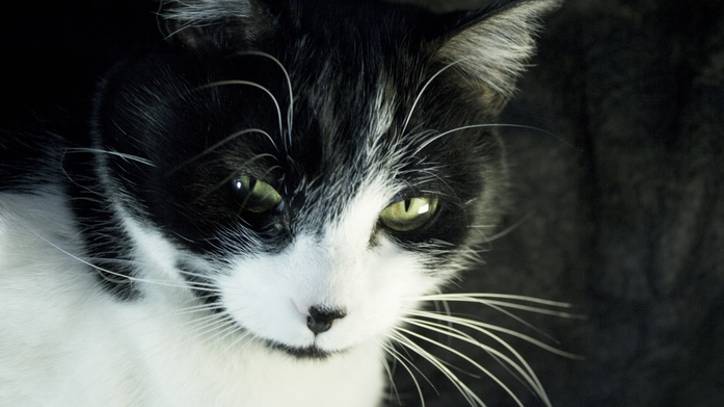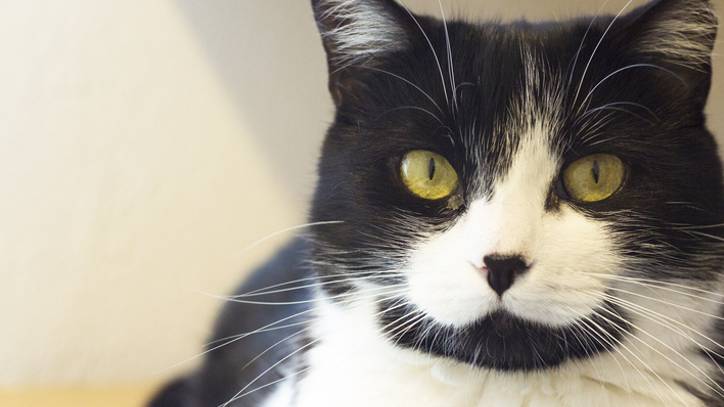FIV in cats: Vet's guide to symptoms, treatment and management
FIV in cats is similar to HIV in humans—read on to learn more about this disease

Get the best advice, tips and top tech for your beloved Pets
You are now subscribed
Your newsletter sign-up was successful
FIV in cats, or feline immunodeficiency virus, is an infection specific to felines that causes immunosuppression, hence its name.
Symptoms may not be evident for months or even years after exposure, so it is a good idea to have pet insurance on hand when you adopt a cat.
Keep reading to learn more about what FIV is, how it’s diagnosed and managed, and its prognosis.
What is FIV in cats?
FIV is a viral infection in cats that shares similarities with HIV, or human immunodeficiency virus, in humans. Upon initial exposure, the virus travels to the lymph nodes, replicates in white blood cells, and then spreads to other lymph nodes.
After this, the virus persists in low levels in the body and suppresses immune cells, leading to immunosuppression and leaving cats susceptible to other infections. Cats with FIV are also more likely to develop cancers and blood disorders.
FIV has been reported to be present in approximately 2.5-5% of healthy cats and at least 15% of sick cats in North America. Its prevalence increases with age, and it is more common in male cats.
How does FIV spread in cats?
The main route of transmission of FIV is via saliva, usually through biting. Casual contact (i.e., grooming, sharing food bowls) has not been shown to be an efficient route of transmission.
Get the best advice, tips and top tech for your beloved Pets
The virus can also be spread from infected mothers to their kittens, though this is less common. Unlike HIV in humans, FIV is not transmitted sexually.
Territorial cats have the highest risk of becoming infected with FIV due to their tendency to fight, with older, unneutered, outdoor male cats most frequently infected.
Symptoms of FIV in cats
The clinical signs of FIV vary depending on the stage of infection and the individual cat. Early signs within the first few months of infection are often mild and easily missed, like fever, lethargy, reduced appetite, and enlarged lymph nodes. The virus then goes through an asymptomatic phase in which there are no obvious signs of illness.
Many symptoms of FIV do not appear until the disease has progressed and the cat is immunosuppressed. Symptoms of FIV are often related to secondary infections and include:
- Chronic or recurrent infections of the skin, eyes, bladder, and respiratory tract
- Inflammation of the gums or mouth
- Vomiting and/or diarrhea
- Neurological signs, including behavioral changes and seizures
- Uveitis, which can lead to glaucoma
- Weight loss
- Increased thirst and urinations
- Persistent fever
- Enlarged lymph nodes
- Cancerous growths
Symptoms of FIV can be similar to those of feline leukemia virus, or FeLV, so diagnostic tests are required to distinguish between the two.

Diagnosis of FIV in cats
FIV can be diagnosed using a blood test to detect antibodies to the virus or the virus itself. A quick blood test can be performed at your local veterinary clinic to screen for the disease.
The test can yield false positives and false negatives, so depending on the result and your cat’s risk of infection, your vet may wish to repeat the test at a later date or send a blood sample away to the lab to confirm or rule out the diagnosis.
Treatment of FIV in cats
Unfortunately, there is no cure for FIV. Many antiviral medications used to treat HIV are expensive or toxic to cats, so they are not frequently used.
Zidovudine (AZT) has been reported to help with some symptoms of FIV, however, it does not prolong survival time and may cause severe side effects. Feline recombinant interferon omega has also been used in affected cats with some success.
Secondary infections should be treated early and aggressively in cats with FIV, and infected cats may take longer to respond to treatment and require prolonged or intermittent courses.
Tips for managing FIV in cats
Several steps can be taken to manage FIV to prevent deterioration and potentially prolong a cat’s lifespan:
Have regular check-ups
Infected cats should have regular check-ups with their vet (at least every 6 months) to allow prompt identification of disease, infection, or progression. They should also have bloodwork and a urinalysis performed annually, and they should be kept up to date with regular flea and worm preventatives.
Neutering
Male cats should be neutered to minimize fighting over territory, and female cats should be spayed to prevent transmission to kittens.
Keep FIV cats indoors where possible
At home, cats with FIV should ideally be kept indoors in single-cat households to protect them from other infectious diseases and prevent transmission of the virus to other cats.
If this is not feasible, infected cats should be supervised while outside or given a “curfew,” as most transmission occurs overnight, and they should be housed in a small group of cats who do not fight.
Stressful situations should be avoided where possible.
Avoid raw diets
Lastly, raw diets and other uncooked foods should be avoided in cats with FIV, as these can harbor bacterial pathogens and parasites.
Can you vaccinate cats for FIV?
There is a vaccine for FIV, but it is currently not commercially available in North America. For this reason, prevention of the disease mainly relies on keeping cats indoors and testing all cats living within the same household.
Cats with FIV can benefit from other vaccinations to prevent infection, so long as they are healthy and given “killed” vaccines—live attenuated vaccines can cause disease in immunocompromised animals and should be avoided. Your vet can advise you on whether your cat should receive any vaccinations.
Life expectancy of cats with FIV
The severity of FIV depends on the individual cat and the strain of the virus, so it is not possible to predict how long an infected cat will live. Studies have shown that cats with FIV live around 5 years from the time of diagnosis on average, but this can vary considerably. In general, the more severe the clinical signs are, the worse the prognosis is.
Luckily, many cats with FIV can go on to live fairly normal lives without significantly shortened lifespans if their condition is managed well. If your cat has been diagnosed with FIV, having a trusted vet involved in their care can help you to look after them and keep them as happy and healthy as possible.
Dr. Diana Hasler graduated with distinction from the University of Edinburgh Royal (Dick) School of Veterinary Studies in 2018. She has experience working as a small animal veterinarian in general practice, where she has treated many dogs, cats, rabbits, and rodents. She has also recently branched out into the field of medical communications, doing freelance work as a medical editor and writer. Dr. Hasler has been Postdoctoral Research Fellow at Michigan Medicine since 2023, where she is a Laboratory Animal Medicine Resident.

